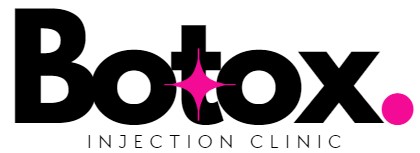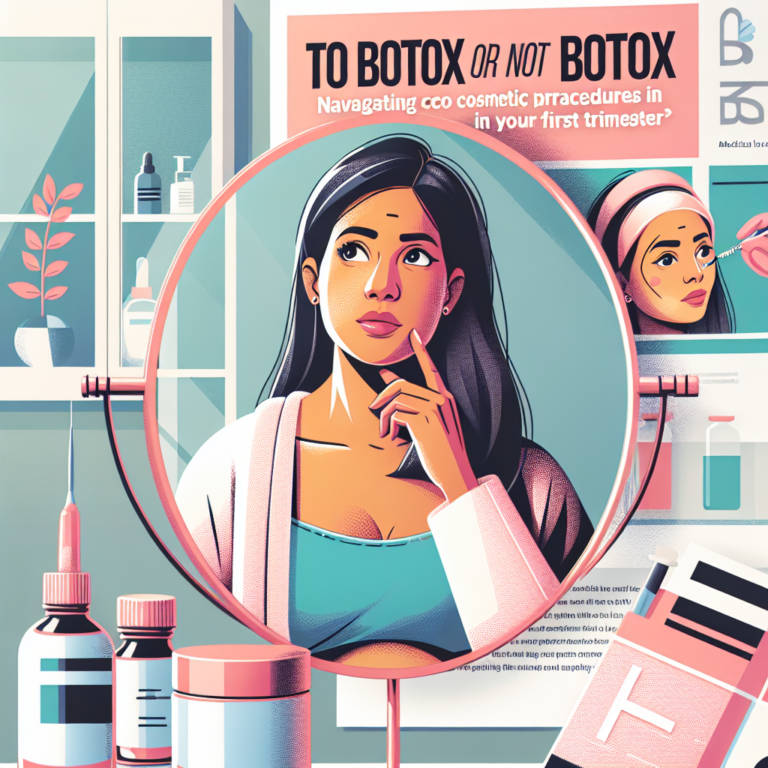Pregnancy is a time of profound change, filled with a whirlwind of emotions, physical transformations, and a whole lot of anticipation. While many expecting mothers focus solely on wellness and preparing for their new arrival, a question that often arises is: “Is it safe to continue with cosmetic procedures like Botox during the first trimester?” This article aims to demystify the topic and guide you in making an informed decision.
Understanding Botox
Botox, a brand name for botulinum toxin, is widely recognized for its use in cosmetic procedures. Doctors use it to temporarily reduce the appearance of wrinkles by blocking the nerve signals that cause muscle contractions. The treatment is non-surgical and has become increasingly popular, appealing to individuals looking to maintain their youthful appearance.
The First Trimester: A Unique Stage
The first trimester, lasting from week one to week twelve, is a critical period of development for your baby. Rapid changes are taking place as major organs and systems form, and the risk of miscarriage is highest during this time. Consequently, healthcare professionals often advise pregnant women to take extra precautions regarding medications, procedures, and substances they use.
The Medical Perspective
Research specific to the safety of Botox during pregnancy is limited, but the prevailing medical opinion is one of caution. Several health organizations, including the American College of Obstetricians and Gynecologists (ACOG), recommend avoiding Botox and other cosmetic procedures while pregnant. This advice stems from the precautionary principle, as there hasn’t been enough comprehensive research to definitively establish the safety of Botox for pregnant women.
Here are a few reasons doctors typically advise against Botox use in the first trimester:
-
Limited Research: The existing studies on Botox mainly focus on its use in non-pregnant individuals. While animal studies may suggest low risks, human responses can differ significantly.
-
Potential Risks: There are concerns that the toxin could cross the placenta, potentially affecting the developing fetus. Both short- and long-term effects remain largely unknown.
- Immune Response: Pregnancy alters the immune system, potentially affecting how the body reacts to injected substances, including Botox.
Self-Reflection: Weighing Your Motivation
If you’re contemplating Botox during your first trimester, it’s essential to reflect on your motivations. Are you feeling pressure to maintain a certain appearance? Or perhaps you see Botox as a way to boost your confidence amidst the physical changes of pregnancy?
Psychological Considerations
Pregnancy can evoke feelings of self-discomfort due to changing body image. Acknowledging these feelings is vital. Instead of resorting to Botox, consider embracing your body’s natural changes and rediscovering confidence in this unique phase of life.
If maintaining your appearance is significant—don’t hesitate to explore safe and natural alternatives. Focus on a well-balanced diet, proper hydration, regular exercise, and a skincare routine that prioritizes nourishing ingredients.
Alternatives to Botox
If you’re yearning for some self-care during your first trimester, consider opting for safer, non-invasive options:
-
Skincare routine: Invest in quality products that hydrate and nourish your skin. Ingredients like hyaluronic acid and vitamin C can offer beneficial effects without any risk.
-
Hydration: Drinking plenty of water can work wonders for your skin and help tackle pregnancy-related issues like swelling or dryness.
-
Healthy Diet: Nourishing your body with fruits, vegetables, and healthy fats will boost your skin’s vitality.
- Gentle Facial Treatments: Look for non-invasive facials that use safe, all-natural products tailored for pregnant women.
Conclusion
Ultimately, the decision regarding Botox in the first trimester is a personal one. However, weighing the current medical advice against your reasons for wanting the procedure is crucial. With sufficient alternatives and the possibility to embrace the natural transition your body is going through, many women find that it’s more empowering to appreciate their pregnancy journey without the influence of cosmetic procedures like Botox.
If you’re still uncertain, engaging in open discussions with your healthcare provider about your concerns or desires can help guide you toward a resolution that works for you and your growing family. Always prioritize safety and wellness—after all, the glow of pregnancy often shines brighter than any cosmetic treatment.


